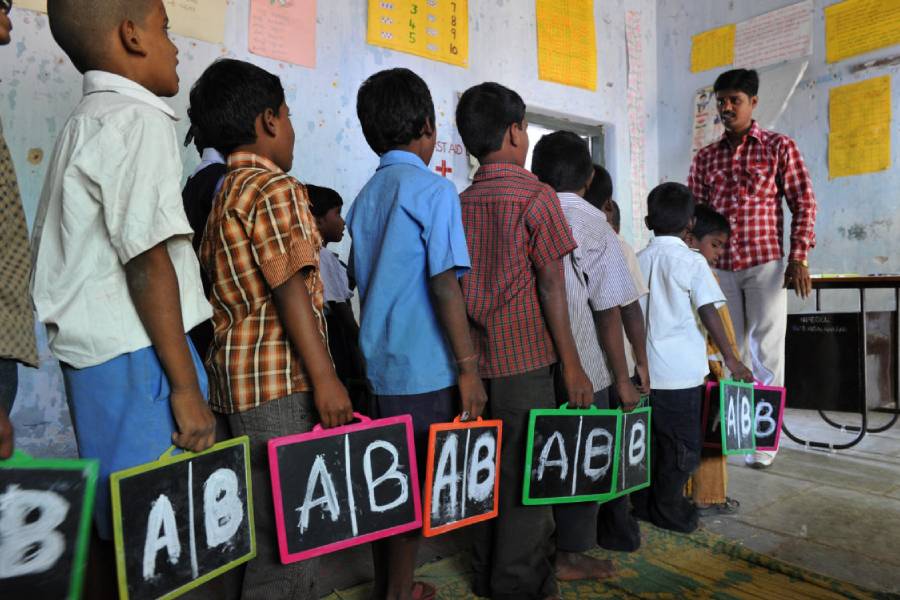The National Education Policy 2020 asserted the importance of imparting primary education to children in their “home language”/“mother tongue”. This is a remarkable idea. It can make it easier for young students to learn and retain knowledge in their formative years. The question is this: in a diverse country such as ours, where language is implicated in the empowerment of certain groups and marginalising others, can we achieve a level playing field for all?
Many locally-spoken languages and dialects do not have their own scripts. The resources to conserve and disseminate these are gravely inadequate. For instance, we lack trained teachers to teach in these languages. Even if we manage to surmount these odds, will it be possible to change wider attitudes? Will speakers of dominant regional languages be ready to engage as equals with speakers of those languages that have historically been described as remote or have tribal origins? A child of the Gond or Korku tribe residing in Madhya Pradesh or Chhattisgarh may find it difficult to secure an education in his/her mother tongue. He/she will, in all probability, be compelled to study in Hindi.
But which version and style of Hindi will be taught to her is another fraught issue. Language is never uniform. There are differences in the ways in which Malayalam is spoken across Kerala; the Marathi spoken in coastal Maharashtra differs from the one that is popular in Vidarbha; the Hindi that is spoken across Madhya Pradesh, Uttar Pradesh and Rajasthan, and within different regions of these states, varies significantly in tone, style and diction. Complicating matters further, Hindi has been embroiled in at least two additional, often disturbing, strands of politics: the first concerns repeated manoeuvres to instal it as the dominant national language. The second is about strategic attempts to distance the twin siblings — Urdu and Hindi — as languages of two distinct collectives.
We need to realise that the insistence on the use of home language/mother tongue as the medium for imparting education will not automatically create linguistic parity. It will only end up reinforcing the dominance of an already dominant local/regional language. So why not break away from this mould and devise an alternative formula? Why not consider the option of offering quality education in English to all students?
The knowledge of English offers a promise of greater economic returns and the consolidation of cultural capital. It has, admittedly, been used to cement pre-existing caste and class privileges. But learning English is an aspiration as well as the key to the door of new economic opportunities. It thus seems prudent to promote and disseminate the knowledge of English. Yet, English teaching and learning are in an abysmal state. Both teachers and students are often found wanting in the basic skills of reading and comprehension in English. Policymakers and educators must address the shortfall and direct their attention towards improving the state of English teaching and learning.
In a country ridden with poverty, inequality and unemployment/underemployment, young people are often forced to explore the option of migrating to foreign shores to access education and livelihood opportunities. These realities have to be accommodated in the academic framework. A good command over English can be an asset for students in their journey. We can also work towards incorporating languages like French or Spanish in our school curricula. These are spoken widely in several parts of the world. If the teaching of at least one or two of such globally marketable languages comes to be included in the curriculum, students would gain immensely from such a step. These reforms will certainly require calibrated channelling of resources and concerted investment in effort, energy, time and money. But the price is worth it in order to brighten the future of students.
Anshu Saluja is a faculty member at Azim Premji University. Views are personal











